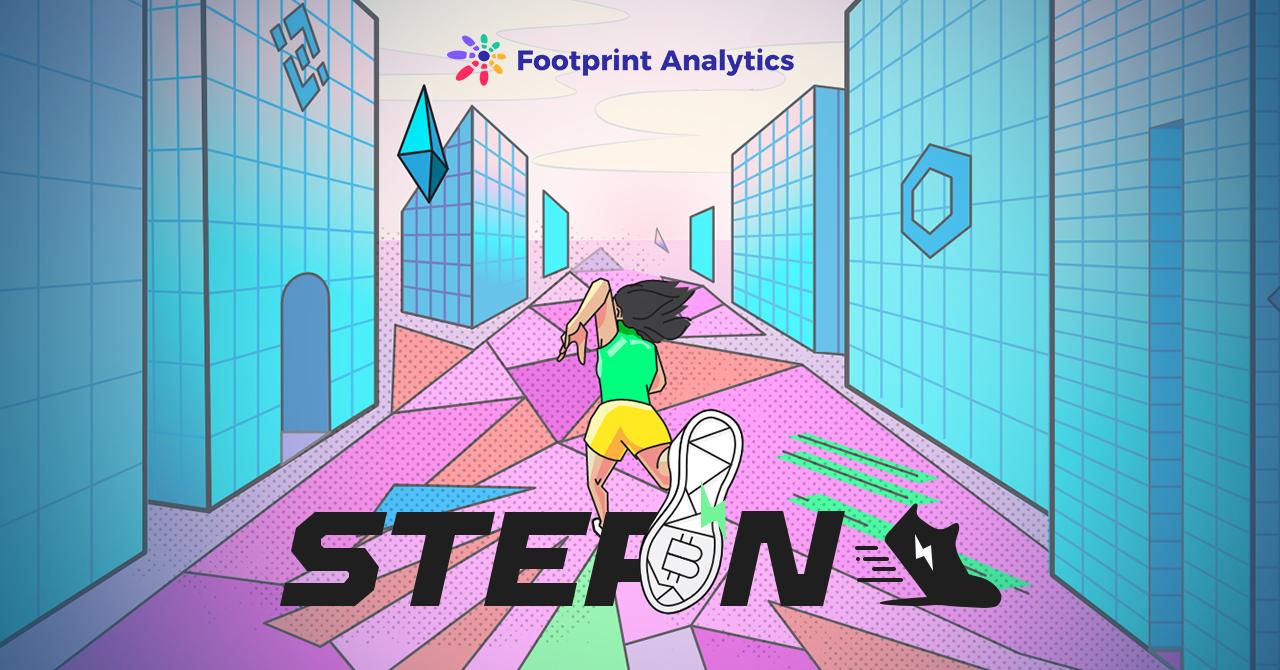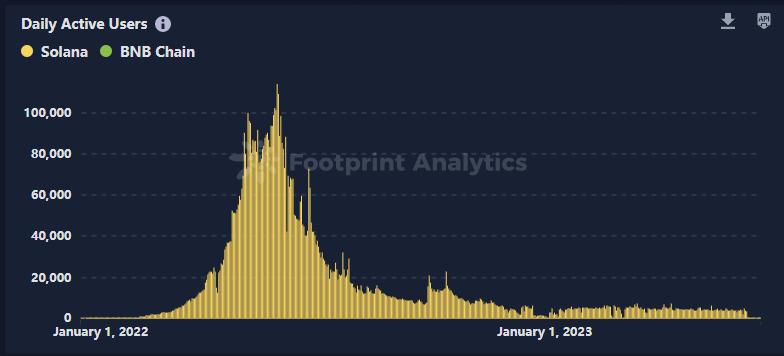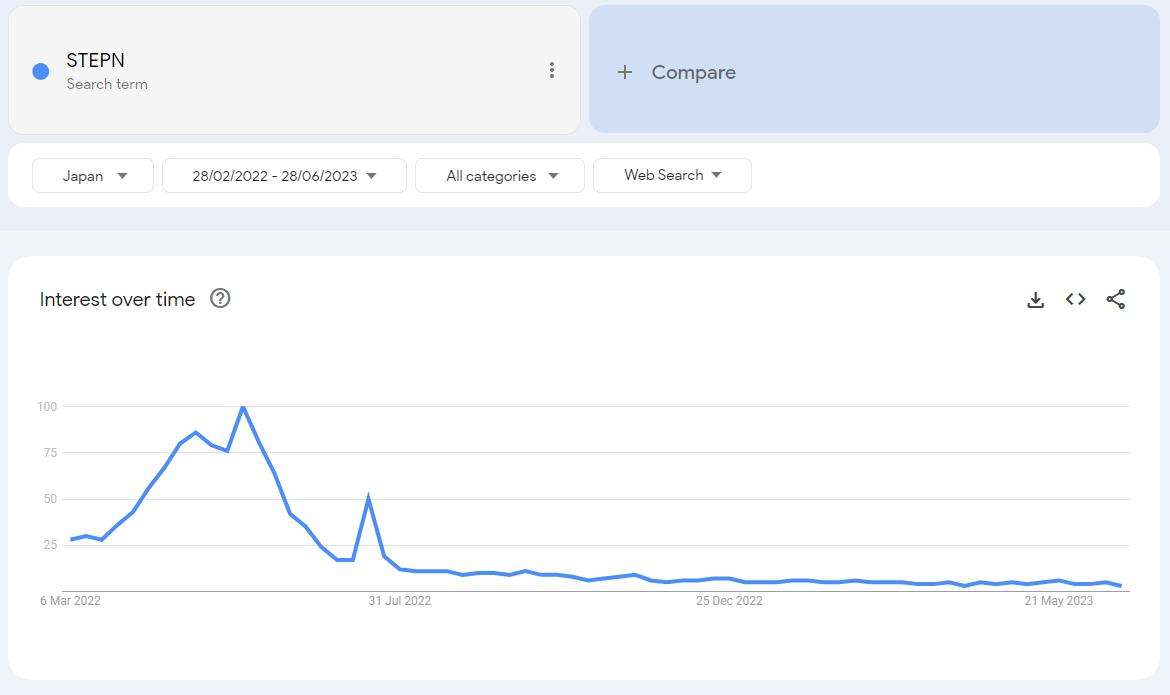In Japan’s cryptocurrency industry, NFT and Web3 gaming are dominant. High quality projects have adopted a series of operational strategies, including building a strong community, localized marketing, and winning user trust through long-term operation. In recent months, the relaxation of Japanese regulations has attracted more attention to the cryptocurrency industry.
Key points:
-
To ensure market stability and investor asset safety, the Japanese government has established strict laws and regulations, which is a challenge for small cryptocurrency projects.
-
STEPN is a model project that has successfully entered the Japanese market. The project seized the opportunity, carried out localized marketing, and actively built a community, attracting a lot of attention in the Japanese market.
Globally, Japan is a unique market with huge potential in finance and investment, and has a strong retail forex industry and a thriving stock trading sector.
- Top 10 Cryptocurrency Market Events of the First Half of 2023
- Analyst: Bitcoin will experience a significant momentum in August if this situation occurs.
- Outlook on the Cryptocurrency Industry: Analysis of Market Changes and Investment Strategies
Due to frequent early cryptocurrency hacking attacks, the Japanese government has a conservative attitude towards the cryptocurrency industry and cautiously regulates it. Even today, due to the supervision of the Financial Services Agency, the choice of cryptocurrency assets in Japan is relatively limited.
However, in 2017, Japan approved Bitcoin as a legal payment form, creating conditions for the rapid development of the cryptocurrency industry. Although the government was initially skeptical of the industry, recent events have shown that as the Japanese blockchain industry continues to develop, the government has become more supportive of its growth.
In April 2023, the Web 3.0 project team of Japan’s ruling party released a white paper proposing recommendations to promote the development of Japan’s cryptocurrency industry. In June 2023, Japan’s “Funds Settlement Act Amendment Bill” was passed in the upper house, becoming the world’s first country to issue a stablecoin law.
However, due to some policy restrictions, such as not being able to directly invest in tokens or issue token projects, the development of DeFi in Japan is still relatively limited. Therefore, NFT and blockchain games are generally considered to be the main participants in the Japanese cryptocurrency market.
If you want to learn more about the Japanese cryptocurrency market, you can click here to view the full report: Japan Cryptocurrency Market Report: Industry Trends and Future Outlook Research.
What are the characteristics of successful blockchain projects in Japan?
Successful blockchain projects in Japan have adopted a range of operating strategies, including building strong communities, localizing projects, and winning the trust of users through long-term operations.
Strong communities
One of the most important characteristics of a successful blockchain project is having a community that is made up of project supporters and loyal users. This community can help increase the project’s visibility, participation, and ensure its long-term operation. To achieve a prosperous community, various methods can be adopted, such as holding community events, incentivizing users, and increasing project transparency.
Localization of projects
Localized operations of projects are critical for various blockchain projects in the Japanese market. Because Japan has a strong cultural foundation, and Japanese dominates daily life, overseas projects need to adapt their products and services to local regulations, translate information into Japanese, and work with local KOLs and media to hold local events. Through contact with localized audiences, projects can gain more visibility and users.
Long-term operation
A successful blockchain currency project must have the ability to respond to risks and adapt to the market. To develop a viable product and concept, the project needs to maintain stable operation in the market’s fluctuations. Japanese people are relatively rigorous and usually hesitant about new technologies, so projects must gradually establish a reputation in the Japanese market and operate for a long time to be successful in the market.
In addition to these characteristics, establishing partnerships with local KOLs, VCs, projects, and media in Japan can also help projects expand their influence, build credibility, and promote win-win growth. This is particularly important in Japan, where industry giants, especially traditional companies, still dominate the market. Therefore, start-ups should fully leverage their own innovation advantages to establish partnerships with these existing giants and rise through cooperation.
STEPN Case Study: Development of Overseas Projects in the Japanese Market

STEPN is the first game to implement the “Move to Earn” economic model in a game and has achieved great success in Japan’s cryptocurrency market.
 STEPN Daily Active Users
STEPN Daily Active Users
The core game mechanism of STEPN is that players can buy sports shoe NFTs in the game and earn game tokens GST by walking, jogging, or outdoor running. These tokens can be used to upgrade existing sports shoes or create new ones. STEPN has achieved tremendous success in Japan, thanks to several key factors.
First, the timing of entry is very critical. When STEPN was launched around the end of 2021, the macro market conditions were relatively good. After the bull market in November 2021, many people had ample funds at their disposal. The increase in liquidity has led to a strong willingness to buy in-game items. Although the project team cannot control market trends, it is still an important deciding factor for project success.
In addition, it should be noted that Japanese players generally have higher spending power than players from other countries. They are often willing to invest large sums of money in NFT items in the game, and some even invest five or six figures to maximize their game returns.
This level of spending is rarely seen in other countries in the gaming industry. For example, Axie Infinity is a popular game in the Philippines, and its main development driver comes from the scholarship mechanism. Players can join a guild by renting three Axies at a low price, which allows them to enter the game with almost no upfront costs. Therefore, individuals can participate with less initial capital.
From the beginning of the game’s launch, STEPN identified Japan as its target market. Therefore, before players from other parts of the world joined the game’s economic system, Japanese players had used their strong purchasing power to shape the market circulation mechanism in the game, making the health and liquidity of its in-game market exceed the global average. Japanese people generally have a lower participation rate in the global community, and STEPN successfully adapted to the local Japanese community, triggering a positive cycle, so discussions about STEPN in the Japanese market are more than in other major markets around the world.
 Source: Google Trends
Source: Google Trends
The use of GPS in games can also be seen as a favorable factor. STEPN needs to precisely track GPS to prevent cheating and maintain the integrity of the in-game economy, while also injecting bets in real time. Many Japanese people use iPhones with precise GPS systems, which allows players to easily start playing and earn money.
The gacha system is a unique feature widely used in Japanese mobile games, where players can use game tokens to exchange for random in-game items. The gacha system has always been an important factor driving game growth in Web2 mobile games. STEPN has successfully integrated this concept into the game, enhancing the participation and interest of game players.
During the hottest period of the game, STEPN players could earn about $3,000 a day just by walking. The user-friendliness and generous rewards of this game triggered a viral frenzy and even an effect of breaking through the circle.
Other projects can learn strategies from successful cases like STEPN. However, it should be noted that macro market conditions and other external factors also have a significant impact on projects operating successfully in the Japanese market.
Opportunities and challenges in Japan’s cryptocurrency industry
Japan has a strong and well-established traditional financial system, providing a solid foundation for the development of its blockchain and Web3 industries.
Compliance has always been an important issue in Japan’s cryptocurrency market. In order to ensure the stability of the investment market and the safety of investors’ assets, Japan has strict laws and regulations in the field of blockchain. However, these regulations, while protecting the industry, also pose challenges for some start-up cryptocurrency projects. Due to compliance costs and high tax burdens, these projects have been hindered in their entry and development. In addition, the approval process for token listing is lengthy, which has led people to believe that the market lacks vitality and has lost confidence in this field.
For a long time, Japan has always been characterized by stability and caution in financial affairs. This attitude may limit the innovation of enterprises and the flexibility of the market, but at the same time can also protect traders from the impact of major risks. Innovation is the key to the success of cryptocurrencies, so the lack of innovation may be an important reason for Japan’s cryptocurrency industry lagging behind other countries.
Like what you're reading? Subscribe to our top stories.
We will continue to update Gambling Chain; if you have any questions or suggestions, please contact us!